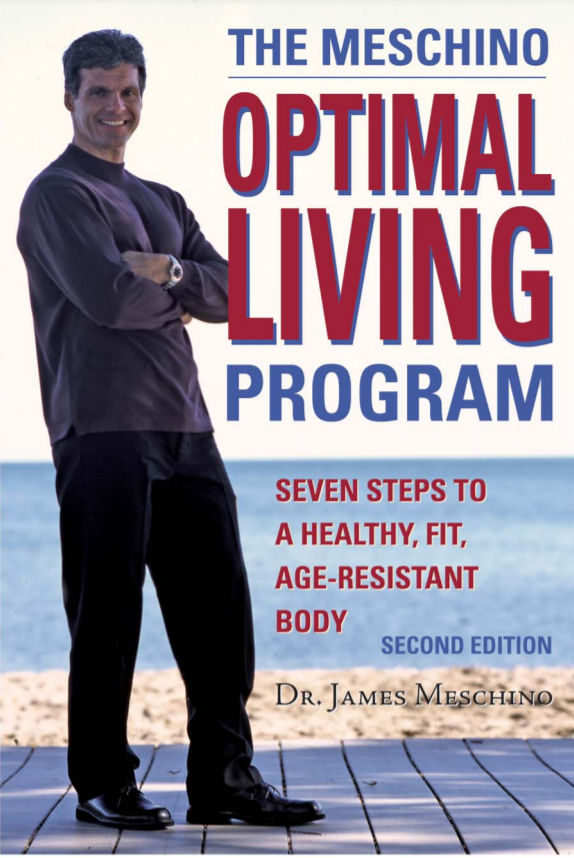
Scheduling Improves Exercise Compliance: How & Why
Today's Will Power Moment - 26
with Dr. James Meschino
One of the inescapable realities of modern life is that everything runs on a schedule. Schedules are a normal part of everyday life because they help keep us organized, productive and able to coordinate things with other people. We plan our day, our week, and even our weekend, down to the hour and sometimes right down to the minute. Scheduling not only makes us more productive with the things we want to do and need to do, it also reminds us to do things we are reluctant to do, like go to dental appointments, go to annual physical check ups, organize tax receipts, and yes – exercise.
As 80% of adults still do not get the recommended physical activity to help ward off heart disease, diabetes, Alzheimer’s disease, weight gain and certain types of cancer, namely breast and colon cancer, I strongly suggest you schedule your exercise time and place it in your daily or weekly calendar – in advance. For most people, simply seeing it pop up on a screen, schedule or day timer creates a sense of accountability to complete the task. Years of using schedules and checklists have wired our brains to complete the task we see before us, then check it off.
From my experience in coaching many patients in the lifestyle medicine field, I can tell you that patients who adopt the habit of entering their exercise time in their calendar or daily checklist have much better compliance than those who don’t. You may have to move it around from time to time if unexpected things come up through the day or week, but just re-enter into a different time slot to keep it on the list. This will incite you to get your workout in before the day is over. Even if you have to reduce your workout time on that day, its still better to get something done so you don’t lose momentum for the next day or next scheduled work out. Momentum is the name of the game when it comes to exercise compliance and results.
Remember, too, that scheduling also forces us to confront the natural limits of the day and avoid setting incongruent or unrealistic goals. So make sure your workout program is not unrealistic, based on the actual time and energy you have available on a daily basis. In my view, it’s better to workout 30 minutes everyday than to plan 90 minute workouts twice a week. Daily habits are easier to stick with than ones that are sprinkled into the week once or twice, as a rule. Most people can find 30 minutes per day. Sometimes finding the 90-minute window once or twice a week is harder. When factoring in the time to get to the workout location, change your clothes, shower, get dressed, and get on with your day or evening, then it’s more like two to two and half hours of total time commitment. That amount of time becomes challenging with the busy lives we lead today.
So, if your exercise frequency is still not up to par, I strongly suggest you start to schedule it into your day timer (in advance) and make sure you are assigning a realistic amount of time to your exercise routine. With my patients, I like to get them started with 30 minutes per day, as most people find that tolerable. If that is too much to start with, then start with less and slowly work up to 30 minutes per day, as I have spoken about in a previous Willpower Moment Video. Remember, a body at rest tends to stay at rest, and a body in motion tends to stay in motion.
Ok, eating healthy is important, but exercise is also a critical part of your health foundation. So get it into your schedule, check it off on your daily wellness checklist on the dashboard page of the Meschino Wellness Platform, and make sure your program is realistic, so you can succeed even on days when you are busy. Because that’s how most days turn out to be.
Eat Smart, Live Well, Look Great!
Dr. James Meschino
DC,MS, ROHP

Dr. James Meschino
ABOUT THE AUTHOR
Dr. James Meschino, DC, MS, ROHP, is an educator, author, and researcher having lectured to thousands of healthcare professionals across North America. He holds a Master’s Degree in Science with specialties in human nutrition and biology and is recognized as an expert in the field of nutrition, anti-aging, fitness, and wellness as well as the author of numerous books.



